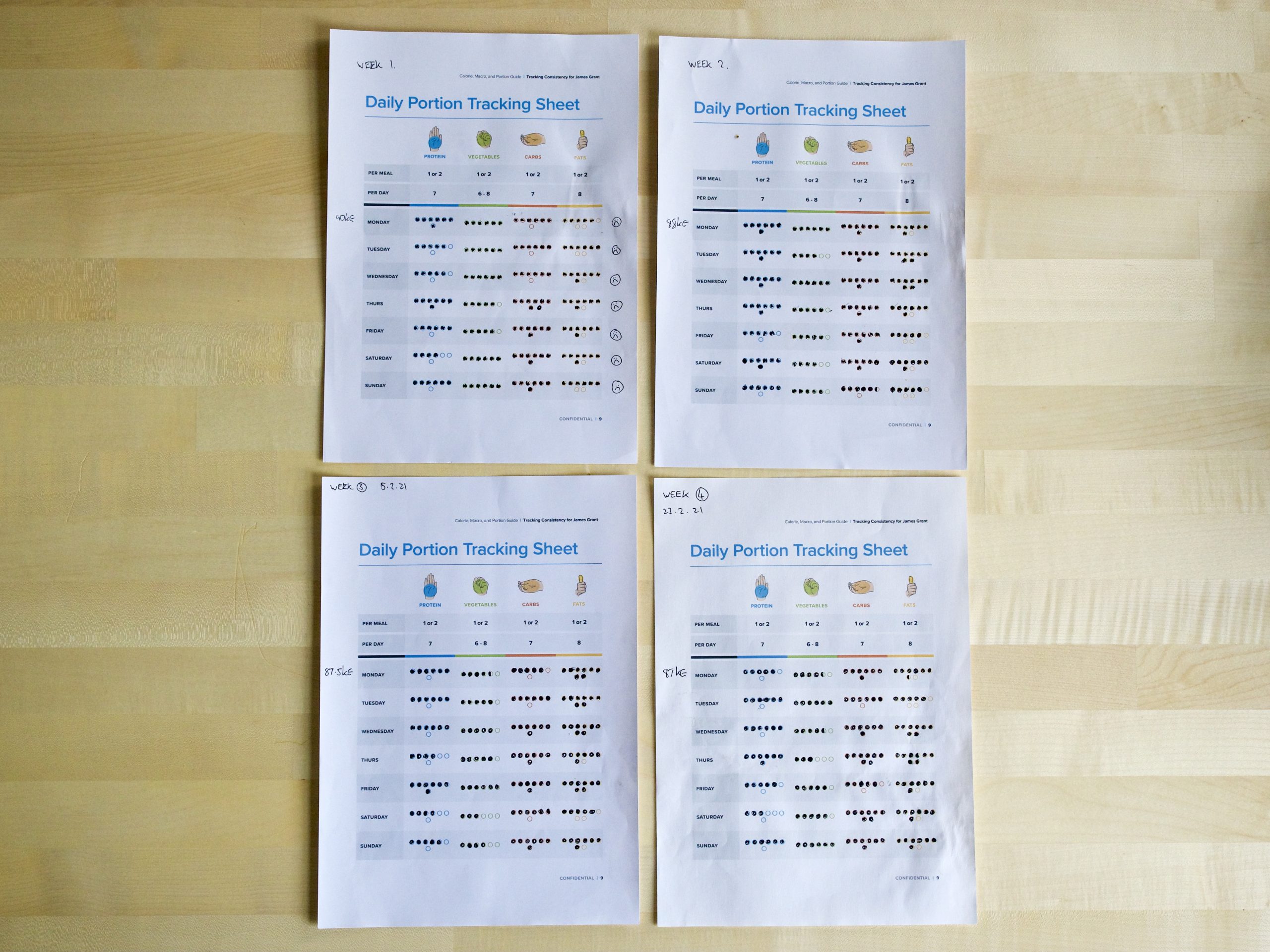So from looking at my tracking sheets it is clear where I have found challenges during my first month of tracked eating.
Not enough protein.
Not enough vegetables.
Now I am intentionally allowing this to be harder by rebelling against a repeatable pattern at this stage.
Realistically when you want to achieve goals such as weight loss or muscle gain, utilising diet structure as one of the facilitating pillars, the most sensible strategy is to devise a repeatable menu plan specifically for you. Just as you would often repeat certain exercises to create measurable improvement, it makes sense that you approach diet with the same methodical approach.
Consistency in repetition is where the real long term progress is made and is also much easier to plan for and establish routines.
However I believe that for a lot of people, myself included, food is more than just sustenance and the building blocks of my physical aspirations. Whilst I would be fine adopting a very methodical eating routine for a short term goal, longer term my relationship with food is more complex and requires a more dynamic approach.
With Cupboard Challenge I try to address my nutritional goals alongside the other real world considerations of daily preferences, seasonal variation, social situations, the needs of the household, time, responsible food choices, cooking creativity and what I’ve remembered (or forgotten) to buy in.
In a nutshell I could easily hit every protein and vegetable requirement on my tracking sheet without fail if I was happy to eat chicken/fish and assorted steamed veg with every meal.
The thing is I don’t want to eat like that or cook like that, so I become my own obstacle.
Firstly I would be apprehensive to eat meat or fish with every meal as I question its’ sustainability and the responsibility of such a choice. I also choose to eat organic as much as possible when it comes to meat or fish and that would currently be too expensive for us.
Another factor is my discomfort with the flippant attitudes towards eating other animals regularly and whilst I don’t class carnivorism as a moral or ethical choice, I do question the disconnect most people have between meat in a packet and the life and death of a sentient animal.
Secondly, eating a wide variety of foods is one of the great privileges of the modern first world and something I try to celebrate on an almost daily basis.
Finally I also love to cook and any excuse to diversify or experiment and I’m reaching for the utensil drawer.
For me this can include familiar dishes that I am forever trying to perfect (whatever that means), new ingredients or recipes, new techniques or can just mean the opportunity to cook for someone else and to their preferences.
This can often lead to detours on my meal making journeys, creating curve balls when trying to adhere to prescribed quantities of certain food groups.
This first month of tracking has helped reveal aspects of my eating that I either suspected but didn’t admit or surprised me until I actually thought about it objectively.
Despite what the plant based advocates publicise, I personally find it difficult to achieve optimal protein consumption when minimising meat intake. I love eating beans but I simply don’t fancy them everyday. Tofu is fine but I don’t exactly crave it and as for tempeh, it’s as popular as eating ****** in our house.
I also enjoy eating a broad range of vegetables, but it’s become clear that in normal day to day life I won’t always be quite the veg muncher I thought I portrayed.
If we are out for a day’s hiking, when I open my pack on a blustery summit, you can bet your ass I haven’t packed a panache of vegetables. Similarly if we are skiing in the Haute Savoie, eating the rainbow becomes more like eating shades of beige, as the macros of this region seem to orbit around bread, cheese and potato maybe with a garnish of salad or possibly a splash of cream. The Alps have been conquered with this winning combination (and I can’t say I’m complaining!).
As we roll into March the month’s focus will be thinking a bit deeper about our protein strategy and looking at viable ways to increase more vegetable incorporation.
We shall see how that goes.





